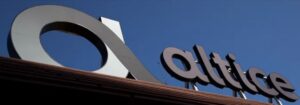
After more than 40 years of operation, DTVE is closing its doors and our website will no longer be updated daily. Thank you for all of your support.
Challenging times for Patrick Drahi and Altice
 Patrick Drahi makes notable public comments relatively rarely but Portuguese police investigation into corrupt practices at the group’s Portuguese operation involving Armando Pereira, one of his closest collaborators in building Altice – Drahi’s multifaceted telecom and media empire – forced him to raise his game at Altice’s two debt investor calls this week.
Patrick Drahi makes notable public comments relatively rarely but Portuguese police investigation into corrupt practices at the group’s Portuguese operation involving Armando Pereira, one of his closest collaborators in building Altice – Drahi’s multifaceted telecom and media empire – forced him to raise his game at Altice’s two debt investor calls this week.
Drahi spoke about his “shock” and “huge disappointment” on the call, and said that the investigation into Pereira and others, if the allegations prove to be true, had made him feel“ betrayed and deceived by a small group of individuals including one of our oldest colleagues”.
More substantively, Drahi promised that the group had taken “swift proactive action to understand the truth and to protect the group from any harm in the event that these allegations are substantiated”.
That is important. The corruption scandal that has engulfed Altice International’s Portuguese operation sits uneasily with a company whose reputation as a sound investment leans on its ability to cut costs.
Drahi’s empire is currently weighted down with around US$60 billion in debt. Speaking at the Altice International and Altice France’s debt investor calls, he was at pains to distance himself and the Altice organisation from Pereira and to highlight the limited impact the alleged corrupt practices within procurement would have on its finances.
Altice comes in three parts: Altice USA, Altice International and Altice France.
Altice USA is the only one of the three publicly listed. The company posted its second quarter results last week, putting a positive spin on slowing down the rate of loss of TV and broadband subscribers. Like other US cablecos, Altice USA has been hit by cord-cutting. However, unlike most others it has adopted an arguably costly approach to upgrading its network, opting for future-proof fibre rather than upgrading its DOCSIS network.
Altice USA was tangentially impacted by the Portuguese corruption scandal, with Yossi Benchetrit, Pereira’s son-in-law and the company’s procurement chief, being put on leave.
Altice USA, like other parts of the Altice empire, is highly indebted. During the quarterly conference call, chief financial officer Marc Sirota told analysts that the company is mulling multiple potential sources of financing.
Heavily indebted
Altice International, the company most impacted by the scandal, is in fact operationally the most successful of the three Altice units currently.
While it is also heavily indebted, its operational statistics are relatively strong. For its second quarter the company posted strong revenue and EBITDA growth, with the Portuguese operation the strongest performer within the group. During the Q2 debt investors conference call Drahi highlighted the management team’s record in turning a company – Portugal Telecom – that was declining into one that was growing by 6% a year.
Altice France presents a more immediate concern. Also heavily indebted like the rest of the empire, Altice France’s telecom operating company SFR turned in less than stellar numbers for the second quarter. telecom revenue decline by 2.5% in the second quarter and total revenue declined by 2.6% to €2.789 billion. Altice Media revenue was down 5.3% to €89 million.
Telecom EBITDA fell by 5.4% and total EBITDA fell by 5.7% to €1.084 billion.
The company faces intense competition in the French market from Orange and – especially – Xavier Niel’s Free as well as Bouygues Telecom.
During the Altice France debt investors call, executives made it clear that all options were on the table to reduce the Altice France debt pile, with choices on the table include the sale of the company’s data centres – the most advanced option – and other options which may be pursued in parallel.
Altice also plans to fully consolidate Xp Fibre, the fibre building outfit created from the merger of SFR’s fibre activities with FTTH infrastructure wholesaler Covage, which still has minority financial investor shareholders. This is expected to “become a cash cow” from 2025 when the fibre build is complete, delivering more cash flow to service debt.
However, Xp Fibre will only become cashflow positive by the end of this year, and free cashflow positive next year, meaning the company will consider consolidation as an option only in 2025 – still some way off to provide a solution. Altice’s debt starts to come due around that time.
Interestingly, Drahi made it clear on the same conference call that he was not interested in selling Altice France’s media arm which includes business news channels BFMTV and a number of local stations. This at a time when his French telecom tycoon peers are increasingly involved in media, sometimes controversially.
During the Altice International call Drahi said that the financial impact of the corruption scandal would be limited, and left guidance for the full year and beyond unchanged.
The scandal that hit Altice Portugal could hardly have come at a worse time in many respects. It is important for Drahi and Altice to convince that all is well. Since the sale of assets is likely to ease the debt burden, the last thing Altice needs is to give the impression it is carrying out a fire sale.


